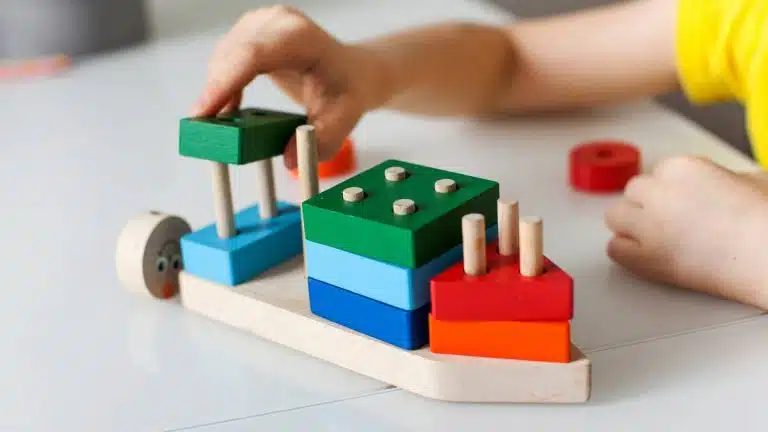Developing Responsibility: Age-Appropriate Chores for Your Child
Instill responsibility in your child through age-appropriate chores. Learn suitable tasks for different age groups and nurture valuable life skills. Learn more now!

Developmental milestones are essential markers that help parents and caregivers assess a child’s growth and progress. While every child develops at their own pace, being aware of potential developmental delays is crucial. Early detection and intervention can significantly impact a child’s future well-being and success. This article will explore critical signs that indicate developmental delays in children and provide valuable insights for recognizing and addressing them.
Every child grows and learns at their own pace, but certain milestones are crucial indicators of their development. Parents, caregivers, and educators must be aware of developmental delays hindering a child’s progress. By recognizing the signs and seeking early intervention, we can provide children with the necessary support to overcome these challenges and reach their full potential.
Developmental delays refer to significant lags in achieving age-appropriate developmental milestones. These delays can occur in various areas of a child’s development, such as motor skills, language and speech, cognition, social and emotional skills, and behavior. It is important to note that delays can be temporary or long-term, and early intervention significantly improves the outcomes for children facing these challenges.
Motor skills encompass both fine motor skills, involving precise movements like grasping objects, and gross motor skills, which involve more significant activities like crawling and walking.
Children with fine motor skills delays may struggle with activities that require hand-eye coordination and agility, such as holding a pencil, tying shoelaces, or buttoning clothes.
Gross motor skills delay manifests as difficulties in activities involving large muscle groups, like sitting, standing, walking, running, and jumping. Children with gross motor delays may exhibit poor balance, coordination, or muscle tone.
Language and speech delays can affect a child’s ability to understand and express themselves verbally.
Take a moment to explore our related article: ‘The Advantages and Disadvantages of Bilingualism in Child Development’.”
Cognitive delays pertain to challenges in cognitive processes such as problem-solving, memory, attention, and learning. Children with cognitive delays may struggle with grasping concepts, following instructions, and acquiring new skills.
Social and emotional delays can manifest as difficulties in forming and maintaining relationships, expressing emotions appropriately, and understanding social cues. These delays may result in withdrawn behavior or problems in social interactions.
Behavioral delays encompass challenges related to self-control, impulse regulation, and adapting to new situations. Children with behavioral delays may exhibit disruptive behaviors, aggression, or difficulty managing emotions.
Sensory processing delays involve atypical responses to sensory stimuli, such as sensitivity to light, sound, touch, taste, or smell. Children with sensory processing delays may have difficulty filtering sensory information, leading to sensory-seeking or sensory-avoiding behaviors.
Parents and caregivers must be alert to certain red flags that may indicate developmental delays in children. These red flags include:
If parents or caregivers notice any red flags or have concerns about their child’s development, it is essential to seek professional help. Pediatricians, developmental specialists, and early intervention programs can assess a child’s development, provide a diagnosis if necessary, and recommend appropriate interventions.
Early intervention plays a crucial role in supporting children with developmental delays. Interventions may include therapies, educational programs, and personalized strategies to enhance the child’s development in specific areas. Early intervention programs offer a multidisciplinary approach involving professionals from various fields, such as speech therapy, occupational therapy, and behavioral therapy.
Parents are often the first to notice developmental delays in their children. Parents can identify potential delays and seek appropriate help by actively observing and engaging with their children. Keeping track of milestones, seeking professional advice, and actively participating in intervention programs can significantly contribute to a child’s progress.
Creating an enriching environment at home and in educational settings is crucial for children with developmental delays. Providing stimulating activities, opportunities for social interaction, and tailored learning experiences can support their overall development and help them overcome challenges.
Families with children facing developmental delays can benefit from various resources and support networks. Local support groups, online communities, and organizations dedicated to developmental disabilities offer valuable information, guidance, and emotional support for parents and caregivers.
Recognizing developmental delays in children is of utmost importance for their well-being and future success. By being aware of the critical signs and seeking early intervention, we can provide children with the necessary support and resources to navigate their developmental journey effectively. Remember, each child is unique, and with the proper support and encouragement, they can overcome challenges and thrive.
A developmental delay is characterized by a significant and persistent lag in achieving milestones compared to children of the same age. While temporary lags may occur, consistent delays or multiple areas of concern warrant professional evaluation.
Not all developmental delays are permanent. Early intervention and appropriate support can often mitigate the effects of delays, enabling children to catch up to their peers or develop compensatory strategies.
Creating a supportive environment at home involves:
Maintaining open communication with professionals involved in your child’s care is also essential.
With timely intervention and appropriate support, many children with developmental delays can progress significantly and achieve their developmental milestones. Each child’s progress may vary, and it is important to celebrate their achievements.
Various resources are available for families, including local support groups, educational programs, and online communities. Speak to your child’s healthcare provider or search for organizations specializing in developmental disabilities for guidance and information specific to your area.
Instill responsibility in your child through age-appropriate chores. Learn suitable tasks for different age groups and nurture valuable life skills. Learn more now!

Get Your Resources to Your Email Now!
Comment (1)
Michele Robinson
18 month not speaking words